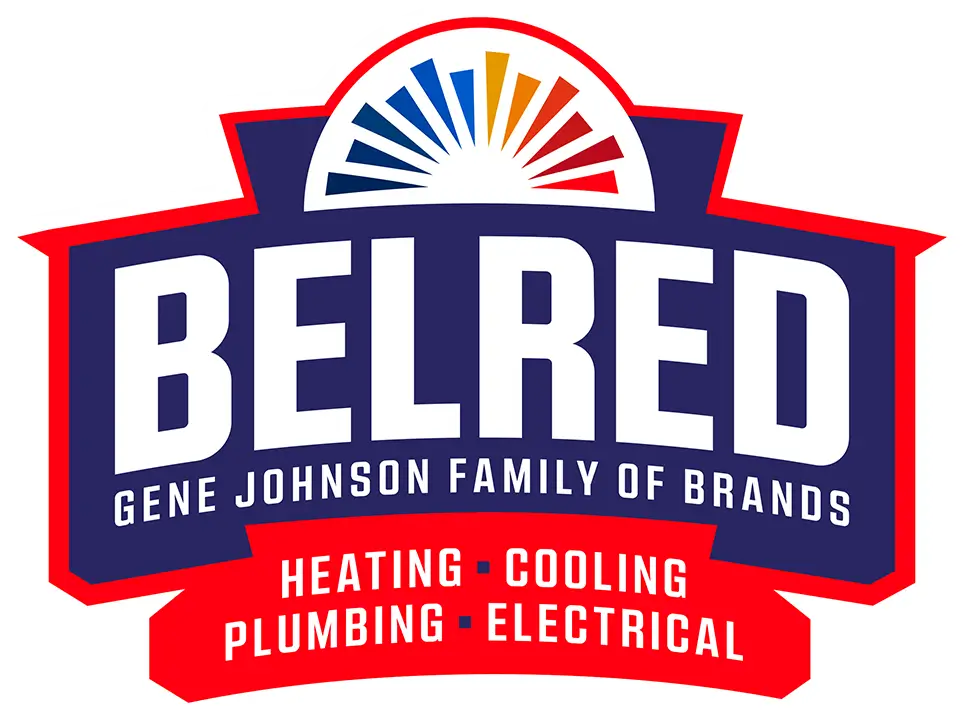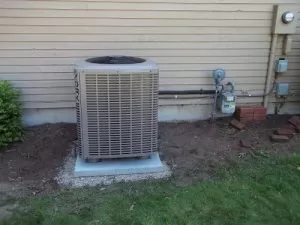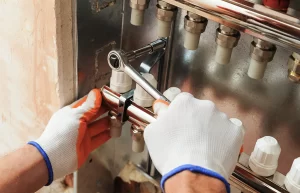The cost of an air conditioner Freon refill varies by type, amount, and availability. Costs may vary depending on where you live due to logistical factors. However, they are necessary costs.
You also shouldn’t settle for the “cheapest one.” Yes, there are various refrigerant types. You may spend around $100 to $600 to replenish refrigerant lines. Still, how much you spend on them will depend on how much you need.
While there isn’t a universal refrigerant cost, you can learn more about what you can expect to spend on a Freon recharge below.
How Much is Freon for AC Unit?
A Freon refill cost depends on what type of refrigerant and how much of it you need.
There are two main types of refrigerant. One that suits larger systems and another that’s more efficient for smaller ones.
- R-22 Freon (for larger air conditioners)
- R-410A Refrigerant (for later and more compact AC systems)
What kind of air conditioner do you have? Do you have a large air conditioning unit or a mini-split AC system?
How large are the enclosed spaces your air conditioners are conditioning? Do you live somewhere cold or hot? When was the last time you enlisted a professional AC maintenance service?
All these questions will help you know how much you need to spend on a Freon refill.
The Average Cost to Refill Refrigerant
The AC refrigerant you need can cost per pound. There are various Freon types, including R-503, R-502, R-13B1, and R-12. Below you will find the average cost per pound of the two main types of Freon.
R-22 Refrigerant cost per pound
If you need Freon for larger R-22 systems, you can expect to pay anywhere between $20 to $50 per pound. That’s roughly six hundred dollars for a total Freon refill.
However, R-22 is slowly being phased out due to the more harmful elements they release into the environment. As per the Washington Clean Air Act (Emissions Reduction – Chapter 70A.60.RCW), R-22 refrigerant replacement has been discouraged due to its less sustainable features, and not just when it comes to cost-efficiency.
Its Hydrofluorocarbon contains Chlorodifluoromethane or Difluoromonochloromethane. The mix adds up to a colorless gas called (HCFC) which is more harmful to the earth’s ozone layer.
R-410A Freon cost per pound
Some refrigerants are interchangeable or compatible with others. Hydrofluorocarbon (HFC) is a common type of Freon.
The HFC compound found in R-410A is among the Freon types, with a versatile mix more compatible with others. The typical HFC Freon cost per pound is significantly less than non-HFC types.
The average R-410A cost per pound is only between $3 to $8. Most systems with R-410A equipment require six to fifteen-pound Freon recharge.
If you have sustainable air conditioners with HFC-fueled equipment, you can expect only to pay a fraction of what you would with an R-22 air conditioner Freon refill.
Compare prices per pound
- R-22 Freon (HCFC compound): $20 to $50 per pound.
- R-410A Freon (HFC compound): $3 to $8 per pound.
Air Conditioner Freon Refill Cost
- R-22 residential Freon gas refill: $200 to $600 to recharge home AC.
- R-410A residential Freon refill: $18 to $120 to recharge home AC.
When Do You Need to Refill the Refrigerant in Your Air Conditioning System?
Your air conditioning systems won’t always require more Freon or a total home AC recharge. Contrary to popular belief, AC cooling does not “deplete” refrigerant levels.
Your home air conditioners only lose Freon when there is a major leak or tear in your refrigerant line. You may also have a loose or damaged Freon valve releasing storage from its closed-loop systems.
Still, the cooling capacity of any AC unit is determined by its level of refrigerant. If your AC unit has leaks and damages, you need to refill refrigerant levels before coolant saturates internal components.
Can You Refill Refrigerant in Air Conditioners By Yourself?
You might be able to refill refrigerant levels by yourself. You may save on repair costs if you have the right tools and knowledge to wield them.
However, don’t conduct your first DIY project to add Freon to your home AC units. It takes tools, techniques, and experience to evacuate coolant, add Freon, and clean your air conditioner.
You should enlist the help of a certified HVAC professional for refrigerant leak repair and other maintenance services. It’s in the best interest of your AC unit and overall convenience to leave such HVAC problems to the professionals.
Average Labor Cost to Recharge Your Home Air conditioner
Servicing your home AC unit is relatively inexpensive. It will certainly cost you less than buying a new AC unit.
Labor costs to service your AC unit vary from $50 to $150 an hour. Remember, labor costs don’t include the total refrigerant price.
Refrigerant cost per pound and recharging your AC unit depends on how many units require replenishment. Considering both factors, you can expect to pay the average total of a home AC recharge cost of $300.
Your home AC recharge may cost more or less, but a reliable HVAC professional’s meticulous handling of your AC unit is priceless.
We aren’t trying to convince you to pay for professional HVAC services. We are trying to dissuade you from haphazard DIY projects that may lead to unreliable repairs and faulty installations.
Entrusting an HVAC professional with everything your AC unit needs can even help you save money. HVAC contractors carry various Freon alternatives and help you determine the right refrigerant price for your HVAC needs.
Sometimes, by trying to do everything ourselves, we may pay too much! Since refrigerant cost per pound differs among various factors, we may not know enough about our AC units to buy their necessities accurately.
We end up paying for more Freon than the real cost to recharge our AC units. Remember, you can’t just store the excess refrigerant you bought.
Those are potentially hazardous chemicals that need safe-keeping and proper handling.
What is Refrigerant?
Refrigerant is a mix of various chemical compounds. Most systems require Hydrofluorocarbon, while others have more hazardous chemicals in their mix.
Refrigerant, or Freon, is a coolant that alters temperatures. Your HVAC system doesn’t just turn warm air into cool air or the inverse out of thin air.
Air conditioner Freon is a liquid medium circulating around closed-loop systems linked to both your condenser and evaporator coils.
What Does Refrigerant Do?
The outdoor unit of your HVAC system holds the condenser coil, which facilitates refrigerant circulation. Once Freon makes it into the evaporator coil, it is then transformed into its gaseous state.
The evaporator coils located inside your indoor air handler absorb your home’s heat particles to inject into Freon, converting the coolant from liquid to gas. The gas is later expelled as exhaust fumes.
With the help of Freon, coils extract the heat particles saturating your air. The cooling cycle begins with heat absorption to leave your indoor environment with nothing but cool air.
As you can see, contrary to popular belief, your AC unit doesn’t convert warm air into cool air. Cooler temperatures cannot penetrate hotter environments.
Refrigerant is the only way your home AC unit can utilize the law of thermodynamics in ways that are favorable to you. To help with your scientific curiosity, we expound more on that topic below.
How does Thermodynamics affect your everyday comfort… with refrigerant?
The science behind your home air conditioner makes for an interesting read. Have you ever stopped to think, “why are there appliances for instantly heating something and not cooling something?”
Even blast chillers can’t cool something down as fast as microwaves can heat things up!
It takes longer to cool things because the first step in any cooling cycle is extracting heat, and the length of extraction depends on your desired temperatures.
Chillers, refrigerators, and AC units all have refrigerant because, as far as we know, they are the closest things we have to “instant coolers.”
What happens when my air conditioner doesn’t have enough refrigerant?
We have instant heating appliances such as microwaves because heat particles are the only variable in equations involving temperatures!
There are no cool particles in the air, only the absence of heat.
Refrigerant makes the process of heat extraction possible, and with adequate heat extraction, your home AC unit can effectively lower indoor temperatures.
While Freon is a refillable element, it is one of your HVAC system’s most critical components. Depleted Freon levels can render your air conditioner as useless as defective motors could.
However, Freon isn’t perishable, even if it is a rechargeable component!
Freon Leaks
As previously mentioned, you cannot use up your Freon supply. The only reason you would ever need to recharge refrigerant is due to leaks.
Refrigerant is an everlasting chemical compound; it does not expire and isn’t burned or consumed by your air conditioner. It is encased in a permanently closed-loop system that may leak due to wear and tear.
It is important to call for immediate leak repair as soon as you notice your air conditioner performing at a lower capacity or producing unusual sounds.
If your air conditioner struggles to provide quality air conditioning while making a hissing sound, you need to call an HVAC technician.
Air Conditioner Maintenance and Tune-Up Services
Your air conditioning unit requires regular inspection and tune-ups. Routine evaluation from a reliable HVAC technician prevents more costly leak repair and other disasters!
However, not all professionals are reliable or affordable, and not all inexpensive services are professional or reliable! Finding an HVAC technician who can give you that balance is important.
BelRed for Your Air Conditioners
If your air conditioning units are in trouble, the team of BelRed HVAC contractors offers reliable and affordable HVAC services!
We provide various Air Conditioning Maintenance services all over Mukilteo, Washington. You shouldn’t settle for less because we won’t either!
We keep your comfort and convenience first—your AC units – our solutions.







